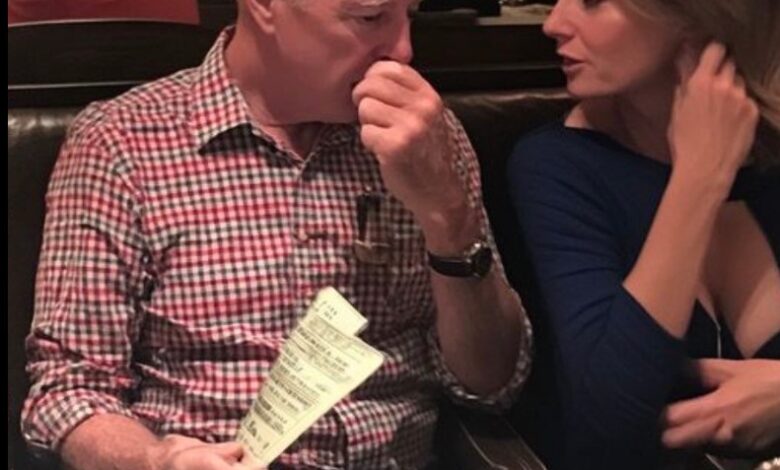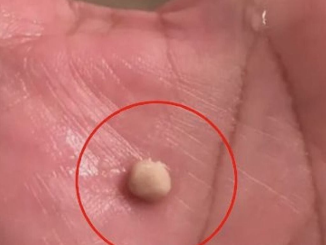Homelessness is a problem that many cities face around the world. Even though governments and organizations are trying to fix it, it’s still a big issue. One Canadian millionaire decided to make a difference in his own town with his money. Here’s his story.
In Fredericton, New Brunswick, Marcel LeBrun, a millionaire entrepreneur, took action to help homeless people in his community. Marcel, who made a lot of money from his successful social media monitoring company, decided to invest $4 million of his own money to build 99 tiny homes for those in need. He didn’t just stop at providing homes; he also created job opportunities with his unique approach. This project is called 12 Neighbours.
After selling his company and gaining a lot of wealth, Marcel wanted to use his money for good. Seeing the homelessness issue in Fredericton, he came up with the idea of a tiny home community to give homeless people a new start. He named his project 12 Neighbours and aimed to build a gated community with 99 homes and an enterprise center. This community offers both housing and job opportunities, giving homeless people a chance to rebuild their lives.

Homelessness is a big issue in New Brunswick, with about 1,600 people experiencing it in a single day last year. In bigger cities like San Francisco, Los Angeles, and New York in the United States, the number of homeless people is much higher. Marcel LeBrun saw a chance to make a difference and decided to help those struggling with homelessness.
Marcel’s project, 12 Neighbours, is not just about building tiny homes. He wants to create a supportive community for people. The tiny homes he’s building are more than just places to stay. They are fully-furnished with kitchens, living areas, bedrooms, and full bathrooms. They even have solar panels on the roofs. Marcel sees himself as a community builder, aiming to provide a better life for those in need.

To make his vision a reality, Marcel LeBrun set up a factory where skilled volunteers help build the tiny homes. Using modern techniques, the factory can produce one tiny home every four business days. Once a home is built, it is carefully placed on concrete blocks to form the foundation of the community.
Marcel believes that owning a home is important because it gives people a sense of responsibility and stability. By allowing people who have experienced homelessness to own their own homes, the 12 Neighbours project aims to empower them and create a supportive community.

Besides providing homes, Marcel LeBrun’s project also focuses on creating job opportunities for the residents. The 12 Neighbours community includes an enterprise center with a coffee bar and a silk printing business, both run by the residents. This helps generate income and encourages residents to interact with the wider community.
Like any big project, 12 Neighbours has faced criticism. Some people think it’s better to reintegrate homeless individuals directly into society rather than keeping them together in one place. However, Marcel understands these concerns and has taken steps to ensure the community is safe and supportive.
Marcel explained, “Building a few homes is just as complicated as building many, and we wanted to make a real impact on homelessness in Fredericton. If we want to make a meaningful difference, we need to build houses. If I take someone who’s been living outside and put them in a luxury apartment, they might not succeed because it’s not their community or environment.”

Marcel LeBrun knows how important safety is, so he has included top security features in the 12 Neighbours community. There are gated entrances and advanced surveillance systems to ensure residents feel safe and protected.
LeBrun mentioned that some residents face challenges when they first move in. He explained, “When someone moves into a house, they might have others trying to take advantage of them. They need to learn what it means to manage their own space and decide who they let in and out.”
One of the main goals of 12 Neighbours is to build a strong sense of community both inside and outside its gates. LeBrun wants to create a place where residents and the people of Fredericton can come together. The community has a coffee bar and a personalized printing business to encourage interaction and understanding.
LeBrun told CBC, “I see myself as a community builder. We’re not just building a small community; we’re helping to make our city better.”
Marcel LeBrun’s project to build 99 tiny homes in Fredericton, New Brunswick, is a great example of using personal success to help others. Through 12 Neighbours, he has not only provided homes for those in need but also created job opportunities and a supportive community. His efforts have given hope to many and inspired others to make a difference.
My parents forced me to pay for my own dinner while they covered the bill for everyone else – Their justification was absurd

Jennifer’s parents caught her off guard during a family dinner by unexpectedly asking her to cover the cost of her meal, while they paid for everyone else. Jennifer’s resentment brews as the sting of unfairness deepens, setting the stage for a confrontation the family won’t forget.
The night I got the text from Mom about a “special family dinner,” I nearly choked on my microwaved ramen. It had been ages since we’d all gotten together, and even longer since it felt like my parents actually wanted me there.
love my family, but being the middle child is like being the bologna in a sandwich where everyone’s fighting over the bread.
I stared at my phone, thumb hovering over the keyboard. Part of me wanted to make up some lame excuse, but then I thought about Tina and Cameron, my perfect older sister and my can-do-no-wrong little brother.
They’d be there, basking in Mom and Dad’s approval, like always. And I’d remain the perpetual afterthought if I didn’t show up.
“Count me in,” I typed, hitting send before I could change my mind.
Mom replied instantly. “Great! Le Petit Château, 7 p.m. next Friday. Don’t be late!”
Le Petit Château. Fancy. I whistled low, already mentally tallying up my savings. This wasn’t going to be cheap, but hey, maybe it was a sign things were changing. Maybe they actually wanted to spend time with me, Jennifer the Forgettable.
That Friday, I arrived at the restaurant ten minutes early, feeling nervous. Just as I was about to go in, Mom and Dad showed up. Mom was all smiles, while Dad wore his usual concerned expression.
Inside, we found a cozy table, and soon after, Tina and Robert joined us. Tina looked stunning, as always, making me feel like a potato by comparison. Finally, Cameron arrived, late as usual, and complaining about traffic.
Now we were all settled, Mom wasted no time in making me feel insignificant.
“So, Jennifer,” Mom said, peering at me over her menu, “how’s work going? Still at that little marketing firm?”
I nodded, trying not to bristle at the ‘little’ part. “Yeah, it’s good. We just landed a pretty big client, actually. I’m heading up the campaign.”
“Oh, that’s nice,” Mom said, her attention already drifting back to Tina, who was regaling Dad with tales of her son’s latest soccer game.
That stung, but the atmosphere improved while we ate. The food was great, and soon we were talking and laughing like we used to when I was a kid.
I was enjoying the meal and the rare feeling of being part of the family, but then the check came.
Dad reached for it and started going over the bill, like he always did. But then he frowned, looking directly at me.
“Jennifer,” he said, his voice oddly formal, “you’ll be covering your portion tonight.”
I blinked, sure I’d heard him wrong. “What?”
“You’re an adult now,” he continued, as if explaining something to a child. “It’s time you start paying your own way.”
“But…” I started, my voice small, “I thought this was a family dinner. You’re paying for everyone else.”
Dad’s frown deepened. “Your sister and brother have families to support. You’re single, so it’s only fair.”
Fair. The word echoed in my head, mocking me. I swallowed hard, fighting back the tears that threatened to spill over. Without a word, I pulled out my credit card and handed it to the waiter, praying it wouldn’t get declined.
The rest of the night was a blur. As I drove home, the hurt began to curdle into something else. Something harder, angrier.
The next morning, I woke up with a headache and a heart full of resentment. I spent the day alternating between moping on the couch and pacing my apartment like a caged animal. By evening, something inside me had shifted.
I wasn’t just going to let this go. Not this time.
An idea started to form. Crazy at first, but the more I thought about it, the more it made sense. I was going to give them a taste of their own medicine.
I invited Mom and Dad over for dinner and then spent days perfecting the menu. I cleaned my apartment until it sparkled, bought fancy candles, and even splurged on a tablecloth that didn’t come from the dollar store.
The night of the dinner arrived, and I was eerily calm. I had a plan, and I was sticking to it.
The doorbell rang at 7 p.m. sharp. I took a deep breath and opened the door with a smile plastered on my face.
“Mom, Dad! Come in!”
Dad handed me a bottle of wine. “Place looks nice, Jennifer.”
“Thanks,” I said, ushering them to the living room. “Dinner’s almost ready. Can I get you something to drink?”
As I poured their wine, Mom settled onto the couch, her eyes roaming over my bookshelf. “So, how have you been, dear? We haven’t heard much from you since… well, since our last dinner.”
I forced a light laugh. “Oh, you know how it is. Work’s been crazy busy.”
We made small talk for a while, the conversation stilted and full of long pauses. Finally, the oven timer beeped, saving us all.
“Dinner’s ready!” I announced, perhaps a bit too cheerfully.
I’d outdone myself with the meal: herb-crusted salmon, roasted vegetables, and a quinoa salad that had taken forever to get right. Mom and Dad made appropriate noises of appreciation as they ate.
“This is delicious, Jennifer,” Mom said, sounding genuinely impressed. “I didn’t know you could cook like this.”
I shrugged, tamping down the flare of resentment at her surprise. “I’ve picked up a few things over the years.”
The dinner progressed smoothly, almost pleasantly. I almost forgot why I’d invited them over in the first place. Then Dad started with one of his lectures about financial responsibility, and I knew it was time.
As I cleared the plates and brought out a fancy tiramisu for dessert, I steeled myself. This was it.
“So,” I said casually, setting down the dessert plates, “I hope you enjoyed the meal.”
They both nodded, smiling. “It was wonderful, dear,” Mom said.
I smiled back, but it didn’t reach my eyes. “Great. That’ll be $47.50 each, please.”
The silence that followed was deafening. Mom’s fork clattered against her plate, and Dad’s face went through a rapid series of emotions – confusion, disbelief, and then anger.
“I’m sorry, what?” he sputtered.
I kept my voice calm, channeling Dad’s tone from that night at the restaurant. “Well, you’re both adults. It’s time you started paying your own way.”
Mom’s mouth opened and closed like a fish out of water. “But… but this is your home. You invited us.”
“Yes,” I said, my voice hardening slightly. “Just like you invited me to Le Petit Château. And then made me pay for my meal while covering everyone else’s.”
Understanding dawned on their faces, quickly followed by shame.
“Jennifer,” Dad started, his voice gruff. “That’s not… we didn’t mean…”
“Didn’t mean what?” I interrupted, years of pent-up frustration finally boiling over.
“Didn’t mean to make me feel like I’m worth less than Tina or Cameron? Didn’t mean to constantly overlook me? Or did you just not mean to get called out on it?”
Mom reached out, trying to take my hand, but I pulled away. “Sweetie, we had no idea you felt this way.”
I laughed, but there was no humor in it. “Of course you didn’t. Do you have any idea what it’s like to always be the afterthought in your own family?”
Dad shifted uncomfortably in his seat.
“We love you just as much as your siblings, Jennifer.”
“Do you?” I challenged. “Because it doesn’t feel like it. I’m just as successful as Tina, just as hardworking as Cameron. But somehow, I’m always the one who’s expected to ‘act like an adult’ while they get a free pass.”
The room fell silent again, but this time it was heavy with unspoken words and long-ignored feelings.
Finally, Dad cleared his throat. “We… we owe you an apology, Jennifer. A big one.”
Mom nodded, tears in her eyes. “We never meant to make you feel less valued. You’re our daughter, and we love you so much. We’ve just… we’ve done a terrible job of showing it.”
I felt my own eyes welling up, but I blinked back the tears. “I don’t want your apologies. I want you to do better. To be better. To see me.”
Dad stood up, his movements stiff. For a moment, I thought he was going to leave.
Instead, he walked around the table and hugged me. It was awkward and a little too tight, but it was more genuine than any interaction we’d had in years.
“We see you, Jennifer,” he said, his voice rough with emotion. “And we’re so, so proud of you. We’ve been blind and stupid, and we’ve taken you for granted. But that ends now.”
Mom joined the hug, and for a minute, we just stood there, a tangle of arms and unshed tears and long-overdue honesty.
When we finally broke apart, Mom wiped her eyes and gave a watery chuckle. “So, about that bill…”
I couldn’t help but laugh. “Tell you what. This one’s on the house. But next time we go out? We’re splitting the check evenly. All of us.”
Dad nodded solemnly. “Deal.”
As they left that night, things weren’t magically fixed. Years of feeling overlooked and undervalued don’t disappear in one conversation. But it was a start. A crack in the wall I’d built around myself, letting in a glimmer of hope.



Leave a Reply